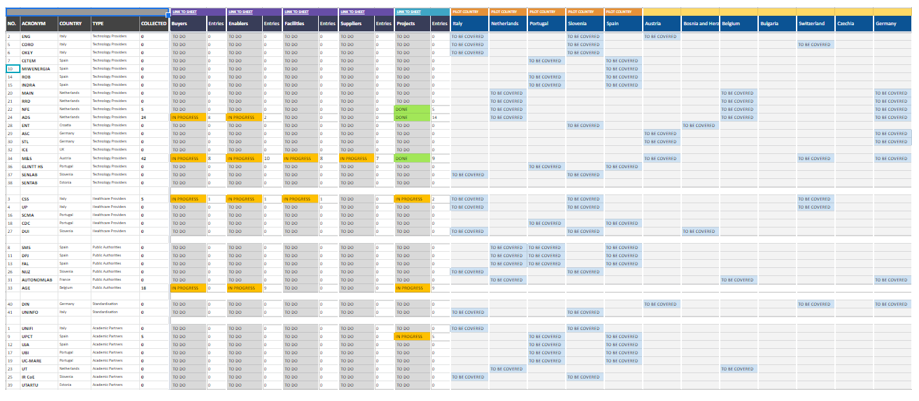
17 Jun NextTechTalents: Project fosters talent ecosystem to empower early-stage researchers in deep tech
Fragmented career paths, limited mobility, and skills mismatches pose ongoing challenges to research careers in Europe, particularly in deep tech sector. NextTechTalents aims to address these challenges by establishing a strong, cross-sector talent ecosystem that equips early-stage researchers with the skills, flexibility, and career support they need to thrive across academia, industry, and the public sector.
The NextTechTalents project titled “Establish a Talent Ecosystem to Increase the Competences and Future Employability of Early-Stage Researchers Emphasising the Deep Tech Sector” is a twenty-eight-month coordination and support action project funded by the EU’s Horizon Europe programme. NextTechTalents, aligned with the goals of the European Research Area, aims to create a robust and sustainable talent ecosystem,
fostering talent circulation across sectors and enhancing employability and mobility. The project aims to develop tailored career services, mentoring programs, and training modules based on the ResearchComp framework to equip researchers with the tools needed for both academic and non-academic pathways. Furthermore, NextTechTalents will create a comprehensive Handbook for Human Resources (HR) managers and training providers within research and innovation organizations, guiding the integration of the NextTechTalents Training System, promoting interdisciplinary skills acquisition, and strengthening collaboration across academia, industry, and entrepreneurial ventures. By addressing mobility, cross sector employability, and inclusive career support, the project will empower early-stage researchers thrive in evolving, competitive sectors.
Methodology
To achieve its objectives, NextTechTalents follows a structured three-phase methodology: COMPILE, CREATE, IMPLEMENT. In the COMPILE phase, the project will map and analyse existing training systems, career development frameworks, and labour market needs across academic and non-academic sectors, identifying best practices and skill gaps. In the CREATE phase, findings will guide the co-design of modular training content, mentoring formats, and strategic career development tools based on the ResearchComp framework. These resources will be tailored to support early-stage researchers in acquiring interdisciplinary, transferable skills relevant to emerging fields like deep tech. In the IMPLEMENT phase, the developed training systems and services will be deployed and validated in real-world settings, using feedback from researchers and stakeholders to refine the approach. This iterative process will ensure usability, relevance, and long-term impact across diverse research and innovation environments.
NextTechTalents objectives
To tackle these challenges and support early-stage researchers across sectors, NextTechTalents sets out five key objectives that guide its mission to build a sustainable, inclusive, and future-ready talent ecosystem:
- CONSOLIDATE knowledge on limitations and barriers for early-stage researchers, including investment barriers, access to funds and capital, visibility, and partnerships creation.
- ENHANCE the employability and mobility of early-stage researchers through tailored training and mentorship programs, improving their alignment with labour market needs.
- IMPLEMENT and refine training systems and career development frameworks through real-world validation, feedback sessions, and continuous optimisation across organisations.
- MAINSTREAM the ResearchComp framework and the European Charter for researchers across all participating organisations in addition to promoting diversity and inclusiveness.
- MAXIMISE dissemination and exploitation of results through stakeholder engagement, partnerships, continuous online presence, events, and collaboration for lasting impact.
Members of the consortium
NextTechTalents brings together 8 partners from 5 EU countries (Austria, Romania, Latvia, Slovenia and Ireland) with interdisciplinary expertise from academia, industry, digital transformation, innovation ecosystems as well as communication, dissemination, and exploitation. This diversity supports the core objective of developing early-career researchers and building sustainable talent ecosystems. The project is coordinated by MINDS & SPARKS, a non-profit research organisation based in Vienna, Austria, which will facilitate smooth project management, consortium coordination, and alignment with strategic objectives. The contributing partners include Babeș-Bolyai University (UBB), providing in-depth expertise in academic training and research development located in Cluj-Napoca, Romania; Ventspils University of Applied Sciences offering substantial expertise in developing and implementing structured training programs, based in Ventsplis, Latvia; Jožef Stefan Institute, a leading research institution for natural sciences and AI-driven research frameworks, based in Ljubljana, Slovenia; Munster Technological University contributing critical insights into European integration, research policy, and governance, located in Cork, Ireland; Impact Hub Liepāja providing expertise in start-up acceleration, digital transformation, and innovation ecosystem development, based in Riga, Latvia; Cluj IT Cluster aligning the training and career services with market demands, located in Cluj-Napoca, Romania and Digital Innovation Hub Slovenia focusing on long-term competitiveness, efficient resource use, and responsible business practices.
Links
https://www.nexttechtalents.eu/
https://twitter.com/NextTechTalents
https://www.linkedin.com/company/nexttechtalents-project
https://www.youtube.com/@NextTechTalents-Project
Keywords
Talent Ecosystem, Research Competences, Employability, Early-Stage Researchers, Deep Tech, Video Lectures, Handbook, Training System

